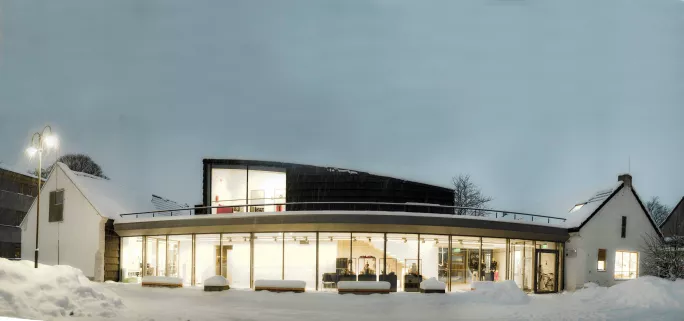I live in Saaremaa, the largest western island of Estonia. It has a silky sea breeze, silence and long, empty (and clean!) beaches.
My school, Kuressaare Regional Training Centre, is a government maintained vocational school for students aged 16 plus. I can walk there in 10 minutes and lessons start at 8.30am.
To start the day, one student plays music to the class and we discuss it. This happens in all of the design subjects I teach. I find that it helps to get the class into learning mode, especially in winter, when it is dark outside.
A few weeks ago I looked up an essay I wrote as a 16-year-old student for my literature class the day I heard Arvo Pärt’s Pari Intervallo for the first time. This autumn the Arvo Pärt Centre was opened in Estonia and a graphic novel published about his life. The author of the novel asked people to send him their memories about listening to Pärt’s music. I sent him a section of my essay and got the book in return, a very well narrated and designed book.
I will use the book to teach my students how to narrate stories, how to depict music with colours, lines and shapes. Pärt has said: “I could compare my music to white light which contains all colours. Only a prism can divide the colours and make them appear; this prism could be the spirit of the listener.”
I believe that music is the best way to light up a class, the best language to connect different generations, to create a space for mutual interest and understanding in classroom and further.
After morning lessons, we have an hour for lunch, where my favourites are dried pea soup with smoked ribs, and sauerkraut baked with pork in oven for five hours. In the winter, the sun rises at 9 and sets at 3.30pm.
Life-long learning is encouraged in Estonian education - and we have many students who keep coming back, to study new things or to pass on their skills as teachers themselves. There’s no limit on the amount of times you can study at a vocational school, you get a stipend, your transport cost is refunded and you can live in a school hostel if you wish.
This culture of constant learning means that sometimes my teaching days are 12 hours long as my evenings are filled with teaching evening courses to adults.
In spring I take a six hour bus to the mainland, to teach at Tartu Art School for a few days once a month. The two female school leaders in Kuressaare and Tartu are the main reason I’ve stayed in education. They are true enablers and facilitators, leading with empathy and emotional intelligence. I believe we need more female leaders, and not only in education.
The hardest job is to get students engaged, to make them realise and believe that they matter, their contribution matters to this island, Estonia and the world. This is why I initiated DesignStem, an Erasmus project of 10 European schools which designs e-tools for the integrated teaching of design and Stem.
We are building, for example, an e-learning project in which students learn about the chemistry of tattoos, and design a biosensitive one that alerts a diabetic about her/his medical condition.
Our aim is to build learning material that is individually, vocationally and socially relevant for students. I think that this could be achieved if we could get teachers of different subjects and students to come together to discuss math and origami, chemistry and ceramics, the importance of production with minimal waste.
Merit Karise is a teacher of creativity, design department of Kuressaare Regional Training Centre, Saaremaa, Estonia.

